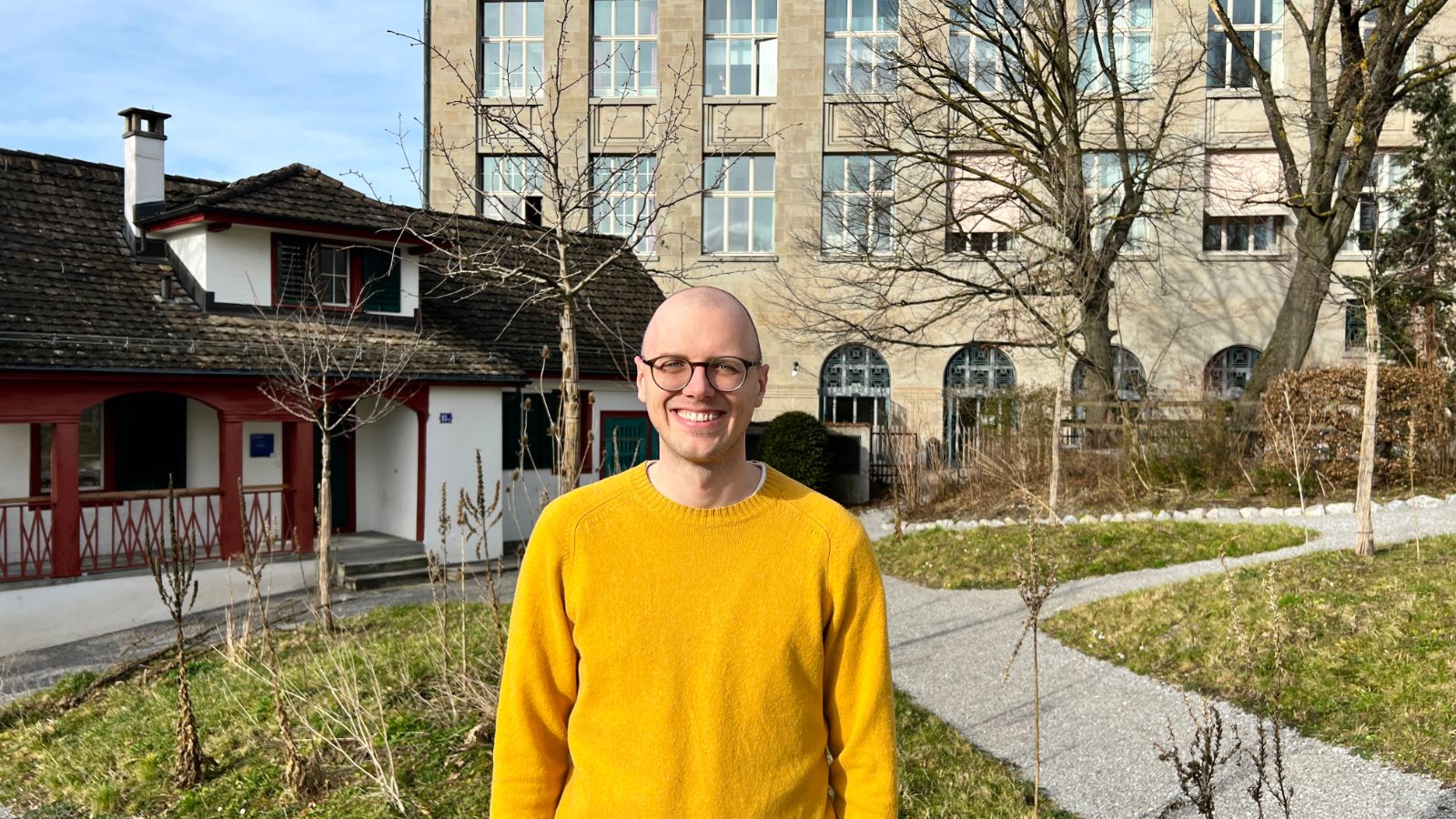Una Europa Testimonial: Max Lauber
You and your colleague Afra Schacher have been working on the Una Europa Mobility Prioritisation Matrix. Can you explain what this is about and how you contribute to Una Europa’s work at UZH?
The Mobility Prioritization Matrix is Una Europa’s response to the European Council's mobility target. While established mobility formats like semester exchanges provide students with valuable opportunities for academic development and cultural immersion, they entail logistical and financial demands that are challenging to many students and insurmountable to some.
Meanwhile, there are ambitious targets at all levels aimed at increasing student mobility. The European Commission, for instance, aims for university alliances to achieve a 50% mobility quota.
The Matrix helps us develop a vision for future student mobility within Una Europa. Each partner university identified promising mobility formats for expansion. At UZH, we organized a workshop with student representatives and stakeholders from all seven faculties and the central services where we discussed the pros and cons of different formats and voted on our top three priorities. Every Una Europa partner went through a similar process, and in a next step the Mobility Cluster will meet to discuss concrete measures to enhance student mobility opportunities based on our collective priorities.
Why is the work that you do so important and how does it contribute to Una Europa’s broader goals?
A big part of my motivation comes from my own student exchange experience, which I believe everyone should have the chance to pursue. Expanding mobility opportunities is crucial for several reasons: first, it allows more students to benefit from international experiences; second, it helps students fully leverage the research strengths of our alliance; and third, it fosters relationship-building within Una Europa at all levels.
If we are serious about developing a university of the future, we need to nurture a sense of community among researchers, administrative staff, and especially students. Mobility experiences play a significant role in developing relationships that create connections across the alliance, allowing us to learn from one another and strengthen Una Europa as a whole.
In your opinion, what are the benefits of Una Europa in terms of student mobility? And where do you see the benefits of working in the Mobility Cluster in Una Europa?
Being part of this alliance of strong research universities is a fantastic opportunity for UZH, opening doors for student mobilities that might not have been possible otherwise. Beyond institutional relationships, the key benefit lies in personal connections. At General Assemblies, you meet people face-to-face, collaborate on projects, and, most importantly, engage in informal conversations, which lower the barriers to collaboration.
Facilitating student exchanges requires extensive communication, often involving many emails. When you have a sense of the person on the other end, communication can become less bureaucratic. Our Mobility Cluster meetings provide regular opportunities to quickly address open questions and streamline collaboration.
What benefits does UZH bring to the Una Europa alliance and its partner universities?
Besides being a great university, UZH is one of two non-EU partners in Una Europa. While this comes with certain challenges, such as differences in regulatory frameworks, it also offers valuable diversity in perspectives. My sense from the Mobility Cluster is that each university has a slightly different set of priorities, constraints and structures, and one of the main benefits for everyone is the sharing of experiences and learning from each other. The experience as a non-EU university means that UZH can contribute a distinctly different perspective when developing joint initiatives and sharing best practices.
You have been collaborating with colleagues from different universities – what has been your experience from that collaboration so far?
Collaborating with colleagues from other Una Europa universities has been invaluable. It’s clear that every institution faces similar constraints, whether in terms of funding or administrative challenges. The fact that each university navigates challenging situationsdifferently means that through our discussions in the Mobility Cluster, I’ve been able to learn a lot from their approaches and gain new perspectives on how to approach shared problems in international collaboration.
What challenges have you encountered and how have you and your colleagues approached these challenges?
Part of working in an alliance with eleven members means that there are a lot of moving parts that need to be taken into consideration when developing joint initiatives: different term dates, different regulations, different financial contexts. Making a project work well requires a lot of proactive communication, especially when some parameter shifts. We at Global Student Experience are trying to cultivate a sense of awareness for these information flows and do our best to make sure that relevant information reaches all involved stakeholders at UZH and at our Una Europa partners.
What is your outlook for the future of mobility opportunities for the UZH community within Una Europa, and what can we expect from the projects you are working on in 2025?
Some decisions still have to be made, but we will definitely continue offering short programs such as summer schools and semester exchange opportunities, likely increasing these options over time. Additionally, we will focus on developing alternative and complementary mobility options. Soon, we’ll meet with our Mobility Cluster colleagues to workshop our next steps.


